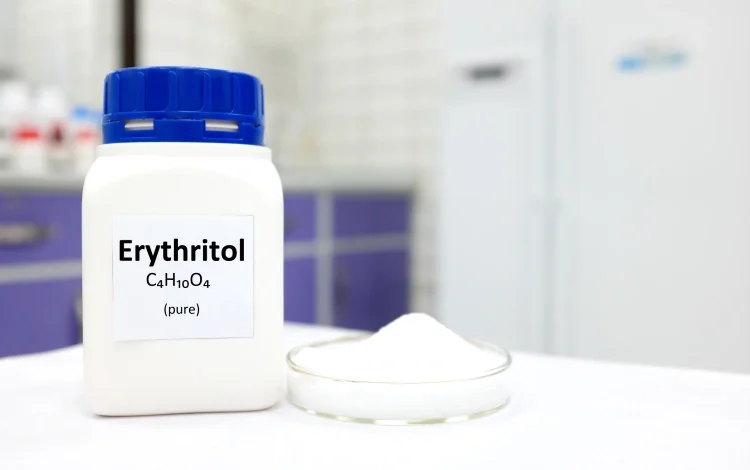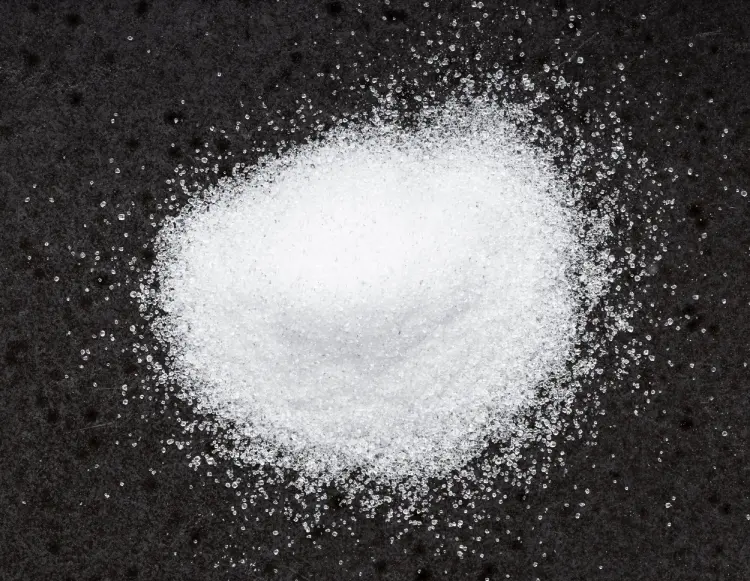A Common Sugar Substitute May Damage Brain’s Protective Barrier, Raise Stroke Risk, New Research Warns
Once Considered a Safe Sugar Alternative, Erythritol May Increase the Risk of Stroke by Harming Blood Vessel and Brain Cell Function, New Studies Reveal.

Erythritol stroke risk is now under serious scientific scrutiny. Once widely regarded as a safe alternative to sugar, erythritol—a low-calorie sweetener—may be quietly undermining the brain’s defense systems and increasing cardiovascular risk. New research from the University of Colorado Boulder shows that erythritol can damage the cells lining the brain’s blood vessels, potentially leading to stroke.
Found in Thousands of Low-Calorie Products

Erythritol appears in everything from protein bars to flavored water, offering about 80% the sweetness of sugar without the calories or spikes in insulin. Its widespread use has grown with the popularity of low-sugar and diabetic-friendly diets.
But this sweetener, often labeled as natural due to its presence in some fruits and fermentation processes, may carry hidden risks.
The new study examined how erythritol affects the blood-brain barrier—the brain’s critical filtering system. Researchers exposed brain blood vessel cells to amounts of erythritol comparable to what’s found in a single sugar-free beverage. They observed a damaging cascade: increased oxidative stress, reduced antioxidant activity, and even cell death.
These changes also disrupted the delicate balance between two key molecules: nitric oxide and endothelin-1. Nitric oxide relaxes blood vessels, promoting healthy blood flow, while endothelin-1 causes them to constrict. Erythritol lowered levels of nitric oxide while boosting endothelin-1, causing blood vessels to stay narrowed. This narrowing can limit the brain’s access to oxygen and nutrients, increasing the risk of ischaemic stroke.
It also weakened the cells’ natural capacity to break down blood clots. Normally, they release a compound called tissue plasminogen activator (t-PA) to break down clots. But erythritol suppressed this mechanism, potentially leaving clots to accumulate and increase the risk of stroke.
Echoes of Earlier Human Studies
The laboratory results align with previous human studies. One 2023 investigation that tracked over 4,000 individuals across the US and Europe found that those with elevated erythritol levels in their blood had nearly double the risk of experiencing a heart attack or stroke within three years.
Another study showed that 30 grams of erythritol—a typical serving in sugar-free ice cream—can make blood platelets more likely to clump, setting the stage for clot formation.
Erythritol is often promoted as a “natural” alternative to artificial sweeteners like aspartame or sucralose, and its chemistry makes it easier to substitute for sugar in recipes. Because it’s technically a sugar alcohol and produced in small amounts by the body, it has largely avoided the negative attention directed at other synthetic sweeteners.
However, experts warn that its natural origin does not guarantee safety. The U.S. Food and Drug Administration and European Food Safety Authority have approved it for consumption, but the new data suggest long-term effects may not be fully understood.
What This Means for Consumers
Researchers emphasize that their experiments were conducted on isolated cells in laboratory conditions. Human bodies are more complex, and more research—especially studies involving whole-body responses or advanced vascular models—is needed to draw final conclusions.
Still, scientists advise consumers to read labels and be mindful of erythritol intake, especially if they consume multiple servings of sugar-free products daily. Given the links to vascular dysfunction and stroke risk, moderation may be a wise approach.
[Source]








